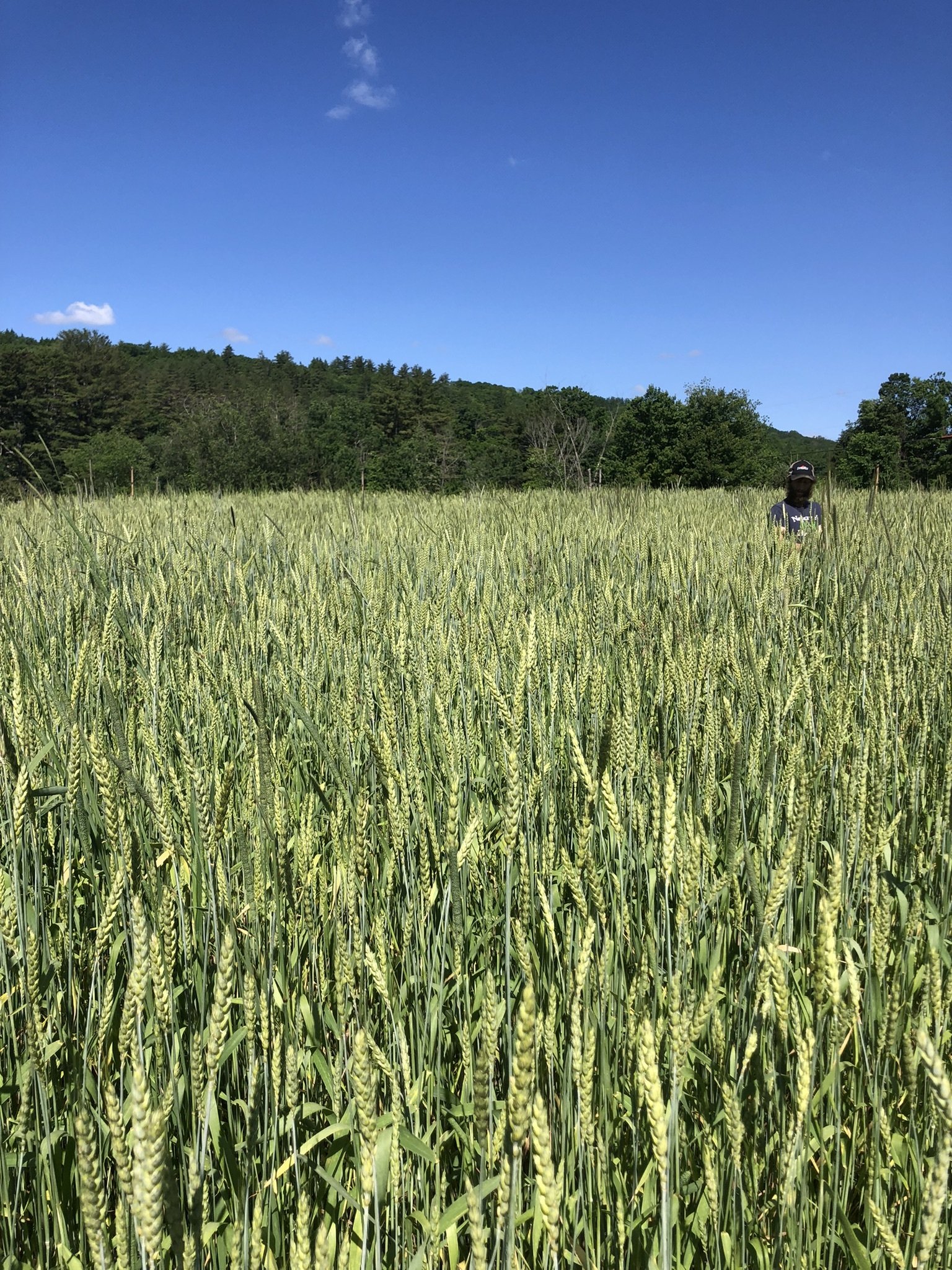“Every New Englander might easily raise all his own breadstuffs in this land of rye and Indian corn, and not depend on distant and fluctuating markets for them.” – Henry David Thoreau, Walden, 1854
“Every New Englander might easily raise all his own breadstuffs in this land of rye and Indian corn, and not depend on distant and fluctuating markets for them.” – Henry David Thoreau, Walden, 1854
Why Grow Grain?
Spare few farms in New England bother to grow grain crops for human consumption anymore—probably because there are a lot of reasons not to grow them. Compared to Nebraska, New England has small, odd-shaped scraps of rocky land and wet summers. As farmers in the 19th century pushed west, it’s not hard to understand how big stretches of flat prairie were enticingly able to pump out a huge amount of shelf-stable, shippable, commodity calories. Subsequently, the small, regionally-adapted New England grain varieties, and the knowledge, threshing, milling, and baking infrastructure that accompanied them slowly died out in the Northeast.
And yet, at Alprilla, we’ve made a significant push to try our hand at growing wheat, flint corn, barley, and beans. Our reasons are both intellectual and practical. As Noah says, the Local Food Movement can’t be just a Produce Movement; We need beer and bread, too.
From a soil-focused standpoint, growing grain has become an integral part of our crop rotation. With our heavy clay soil, we need to carefully rest our fields in a fallow year more often than other farms to keep them in good tilth. We plant grain to rest a field from vegetables every three years. We drill grain in the fall, after the last of the vegetables are picked, so the baby wheat roots will hold down the soil, protecting it from erosion all winter. Early in spring, we seed soil-building clover into the young grain. The grain acts as a nursery for the clover. When the wheat is harvested off as a cash crop in mid summer, the clover is ready to take off and nourish, aerate and protect the soil through another winter until the field returns to vegetable production the following summer.
And with that we say huzzah to beer, bread and polenta!

Restaurants & Caterers:
Please contact us if you are interested in purchasing our grain.
subscribeRs:
Interested in receiving updates on the availability of Alprilla Grains for bulk order as part of the Winter CSA season? Please click below to add your name to our mailing list.












